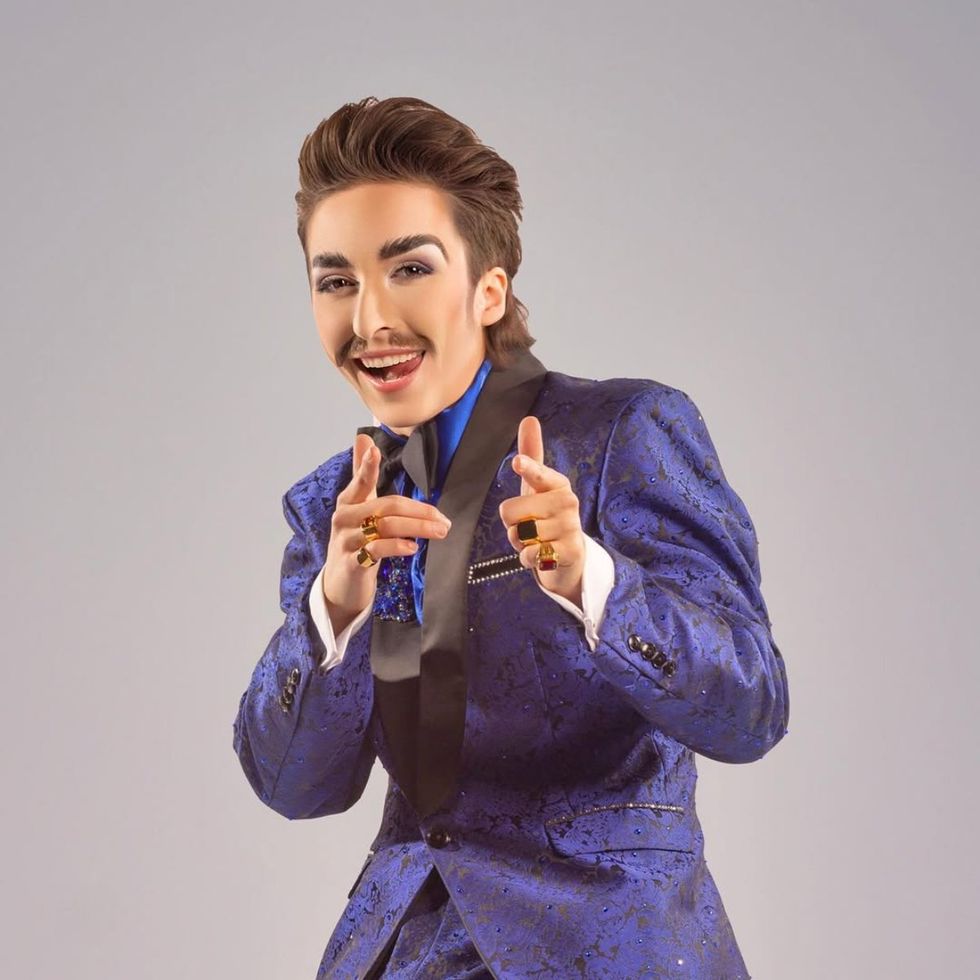One of the greatest powers of cinema lies in its ability to bring its audience into stories from corners of the world they might never have visited, and tell stories about lives they never would have lived. When that’s done well the empathy it fosters cannot be matched. Next Goal Wins may seem like your stand feel-good sports film, but in the hands of writer Taika Watiti it’s so much more — it’s an empathy bomb full of humor and heart. And at its center is the real-life story of Jaiyah Saelua, the world’s first openly transgender football (aka soccer) player.
The film is based on a true story and the documentary that was made about it (bearing the same title as Waititi’s slight fictionalization). It follows the American Samoa soccer team, which was infamous for the most brutal loss in FIFA history, 31-0 to Australia, in 2001. However, hope comes in the form of down-on-his-luck coach, Thomas Rongen (Michael Fassbender), who the team hires with the hope that he can turn their fate around — and maybe even win a game, or at least score “one goal.”

It’s a wacky, heartfelt, and ultimately eye-opening view into both Pacific Islander culture and how trans people fit into it. At the heart of the film is the coaching dynamic turned moving friendship between Coach Rongen and one of his players, Jaiyah. She is fa’afafine, a third gender in Samoan culture, and played by Kaimana, who also identifies as fa’afafine. It was important to handle that story correctly which for Waititi, which meant avoiding being didactic about what it means to be fa’afafine. “We didn’t make a big long scene of explaining everything. I think it’s an audience’s duty to get a feel for what this is. But we don’t want to be like, ‘Hey, here’s an informative film about what a faʻafafine is,’” he tells PRIDE.
Waititi didn’t want it to overpower the story, feeling it would not only be disingenuous, but also not in keeping with the Samoan culture he was hoping to bring to screen. “It would feel very trendy right now to do especially in Hollywood [to make a bigger deal about Jaiyah’s identity], he shares. “In an American filmmaker’s hands, I think you’d have this big speech about, like, ‘It’s okay to be different.’ And really smash it over the head. It’s important we do it in our way and to show that there’s this idea of acceptance has been around for a long time in indigenous cultures. Faʻafafine has been accepted, and it’s a sacred and an honored thing.”
Watch PRIDE's full interview with Taika Waititi and Jaiyah Saelua.

For Waititi, this approach underscores the core of Samoan culture and the way they approach difference, body autonomy, and life in general. “The rest of the world is struggling with the conversation at the moment and figuring out how do we talk about this, and they’re fascinated by what people want to do with their own bodies. Whereas in the Pacific, it’s like, ‘well, that is your body. We actually we need to eat, So you do what you want to do as your body. Let’s go on now, we’re gonna go get some food.’” he jokes. “There’s other things to worry about.”
Still, it was moving for Saelua to watch Kaimana bring her story to the screen, not just because it was her lived experience but because she saw so many other faʻafafine people’s lives reflected there. “A lot of [Kaimana’s] experiences are so true, not only to me, Samoan faʻafafine, and all the comfortability that we have in our region. But also the realities of trans folk that she faces in the movie are things that I’ve gone through myself and a lot of trans people around the world have gone through,” she tells PRIDE. It was just as important to her that audiences see the joy, and how Samoan culture can be a model for the world in the way that it approaches gender. Not to mention how carefree and free the people in American Samoa are as a result of that attitude toward life.

The film stars A-listers including Fassbender, Elizabeth Moss, Will Arnett — and Waititi of course, in a scene-stealing supporting role — but it’s still a major change of pace for the Academy Award-winning writer and director, fresh off the second of two Thor movies for Marvel and still hard at work on his Star Wars film. But that was precisely why the director was so excited to make it. “I had just finished doing Thor and Jojo [Rabbit] and I’d been away from New Zealand for about six or seven years. I watched the [Next Goal Wins] doc and just felt a real connection because it’s the Pacific Island islands, but I just felt homesick and I felt like it just drew me home,” he explains. “I wanted to go home and be around Pacific Islanders again, and make something that was uplifting and made me happy and made me feel like I was at home.”
For Waititi, making a smaller film, with a smaller budget, in just 25 days harkened back to earlier in his career with films like What We Do in the Shadows and The Hunt for the Wilderpeople. “That’s my comfort zone. So to be able to do that with brown faces onscreen, that’s my happy place,” he recalls.
That and, of course, making comedies. Waititi has built a reputation for his dry, absurd humor, but all that wackiness and whimsy is done with purpose. “I have to put humor into my films in some way just to alleviate tension but also to pull the audience in. There are messages in my films,” he explains. This time around he’s trying to speak to the need to sometimes allow yourself to simply go with the flow of life, something that that he says the American Samoan people know all about. ”You’re never gonna get anywhere trying to fight against life and control every aspect of it. It’s okay just to let go and let life happen to you,” he says.
One person who has no intention of giving up the good fight is Saelua, who’s not only a world-class athlete but also an activist speaking out for transgender athletes and their right to compete — a fight that has only become more difficult in recent years. “There has been some progress up until Trump became president and empowered a whole community of — I call them Trumpanzees — just the whole conservative movement, I think, in itself has made a lot of organizations like the IOC and the NCAA rethink what their priorities are in their approach towards LGBTQI+ athletes,” she explains. However, Saelua has hope for the future. “Now we’re starting to move back again. It feels like we take one step forward to take two back, but the fight continues, and I will be here to support.”
It’s hard to imagine watching this film and not feeling your heart open even more — or for the first time. But again, therein lies the power of film, especially in the hands and through the lens of a filmmaker like Waititi, who disarms with humor but whose real gift is in finding the humanity in all his stories, be they a mythical Norse god of thunder, a vampire cruising the nights in Wellington, New Zealand, or an athlete and a coach trying to turn the worst team in professional soccer into, well, not the worst team in professional soccer. That’s one goal we definitely support.


































































